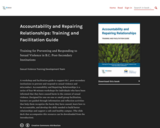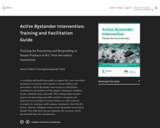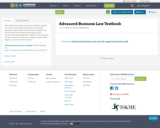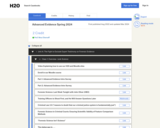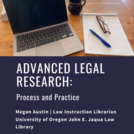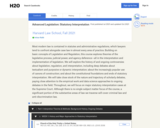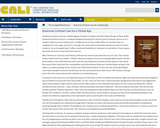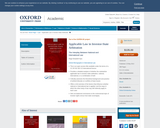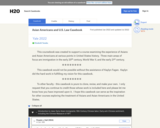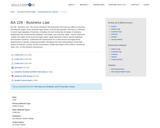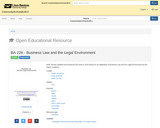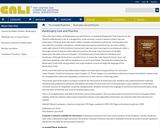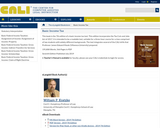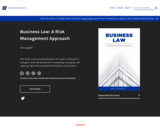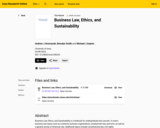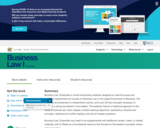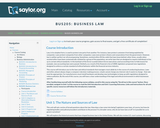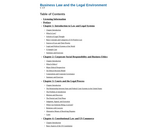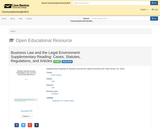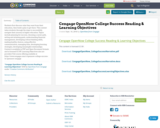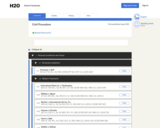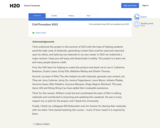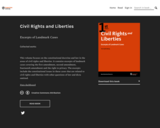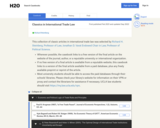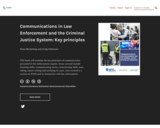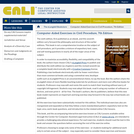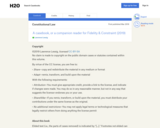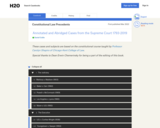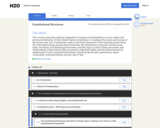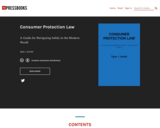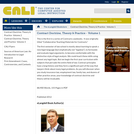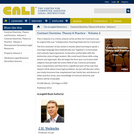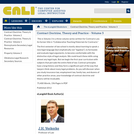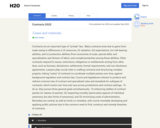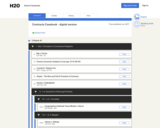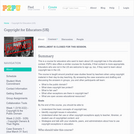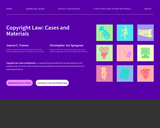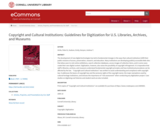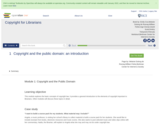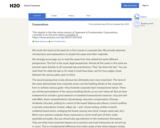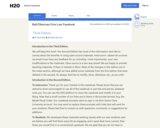Introduction to the Third Edition.We will keep this brief--the Second Edition has most of the information we'd like to convey about the benefits of using open-source materials. Instructors--please let us know via email if you have any feedback for us, including--most importantly--your own modifications to the materials. Open source is a two-way street! We are happy to provide teaching materials, if there is interest in them. Most of the changes in this edition are in the notes section, although we have added some materials from the first edition that were deleted in the second. As always, feel free to modify, clone, distribute, etc., as you wish.Introduction to the Second Edition.To instructors: Thank you for your interest in this casebook. Please know that you are welcome (even encouraged) to use all of the casebook or just bits and pieces, whatever suits you. You can use the H20 platform to clone the casebook and modify it to your liking. Note that a small number of our links are to items in the private domain (e.g. the Model Penal Code). Our casebook prompts users to sign in via their Santa Clara University account. You may want to replace these prompts with links that will work for your students. Please feel free to contact us with questions, comments, or suggestions for additions.To Students: We developed these materials working closely with our own students, and we believe you will find them every bit as engaging, and a good deal more current, than those you would find in a conventional casebook. We are glad that you do not have to spend 200 dollars plus on a casebook that, by and large, relies on public-domain cases. In our view, the for-profit law school casebook industry amounts to commercial exploitation of students: The cost of casebooks is one of many social and economic justice issues that, inter alia, contributes to a lack of diversity in the legal profession. It is an easy problem to fix. If your other classes have expensive casebooks, you might invite your professors to examine our casebook, and to reach out to us for advice on how to make the change to open-source materials.To Everyone: We believe there's something important about a casebook that is collaborative and open. It is a reminder that the law is a community project; one that is iterative and ongoing, one that must speak across difference. This belief is reflected in our substantive choices. For instance, our study of criminal law includes materials about prison abolition, it features notes that help students "talk back" to cases, and uses cases that offer greater representation than that found in most conventional casebooks. It also embraces the notion that there is no one definitive casebook--no "canon" of criminal law. Casebooks arose at a time when concerns about inclusivity and diversity were largely absent from the academy--not because the world was different, but because the academy was different. We hope that this project helps, in some small way, to contribute to unraveling (or at least questioning) the wisdom of the status quo.Many thanks to our excellent Summer 2021 research assistants, who helped us improve the casebook dramatically: Ryba Bhullar, Tessa Duxbury, Olivia Salguero, and Swathi Sreerangarajan.W. David Ball and Michelle Oberman, Santa Clara, CA, August 2021Introduction to the First EditionThis casebook is the result of a collaboration with a team of 11 law students, who worked with us over the course of the pandemic summer of 2020. Our project aimed to redress some of the shortcomings of conventional casebook approaches to criminal law. Too often, casebooks surface issues of mental health, sex, gender, race and sexual orientation without meaningful context to situate how these issues have been treated by the criminal legal system, how they reflect social norms, how they have changed over time, etc.). Too seldom do casebooks invite a meaningful discussion of the role of race in the criminal legal system. Instead, most are marked by a failure to acknowledge, let alone grapple with ongoing discussions of alternatives to policing, alternatives to criminalization, and critical thinking about why we deal with social problems via the criminal legal system (But see Cynthia Lee and Angela Harris’ excellent Criminal Law text for an exception). Our aim in compiling these materials was not to sanitize criminal law; it is by definition a gritty, challenging subject. Instead, we sought to be thoughtful about when and how we expose students to difficult material, aiming to give them the context and the analytical tools needed to process it. This casebook is the result of a team effort to reconsider and reframe the criminal law cannon (so many casebooks use the same cases, after all).Our working model has been central to our work, rendering this casebook less a “product” than the current version of a collective, collaborative, work-in-progress. “Our” casebook is yours—clone it, revise it, make it truly your own. And let us know how you’ve improved on our work. It is not just law as code, to quote one of our former professors Larry Lessig—it is “casebook as coding project.” The beauty of the open casebook system is that we will continue to edit and revise the materials as we use them this semester. If you would like more information about the casebook or the project, please contact David Ball or Michelle Oberman. One final note: We developed a second casebook, Current Challenges in Criminal Law, which we suggest using as a companion to this casebook. (Although it can be used independently, of course). It features links to audio and video content, keyed to the topics in the criminal law casebook. For example, a collection of podcasts on addiction (as volitional choice, as crime, as public health challenge) accompanies this book’s Actus Reus materials. There are numerous entries on alternatives to incarceration, including excerpts like Chenjerai Kumanyika's amazing interview with Ruth Wilson Gilmore. We pair our weekly classes with small-group discussions based on the supplemental material. These sessions require students to reflect on the points of intersection linking the material covered in our casebook and the chosen issue or problem, as well as to consider the law's role in relation to the issue.*We are deeply indebted to the following individuals, among others, whose work helped constitute the foundation upon which we've built: Joshua Dressler; Stephen Garvey; Cynthia Lee; Angela Harris; Jeannie Suk; Tim Wu; Amna Akbar, Alice Ristroph, Paul Butler, Allegra McLeod, Jocelyn Simonson. Thanks to Karen Tani for telling us about the Open Casebook platform! Thanks to our associate dean and colleague Mike Flynn, who found time for our work amidst the chaos of leading our school through the pandemic chaos. And thanks to our students and co-authors, who are the driving force behind this project: Cydney Chilimidos; Miriam Contreras; Jenai Howard; Christina Iriart; Angela Madrigal; Leah Mesfin; Zachary Nemirovsky; Nicholas Newman; Nathanial Perez; Michael Pons; and Phillip Yin.
